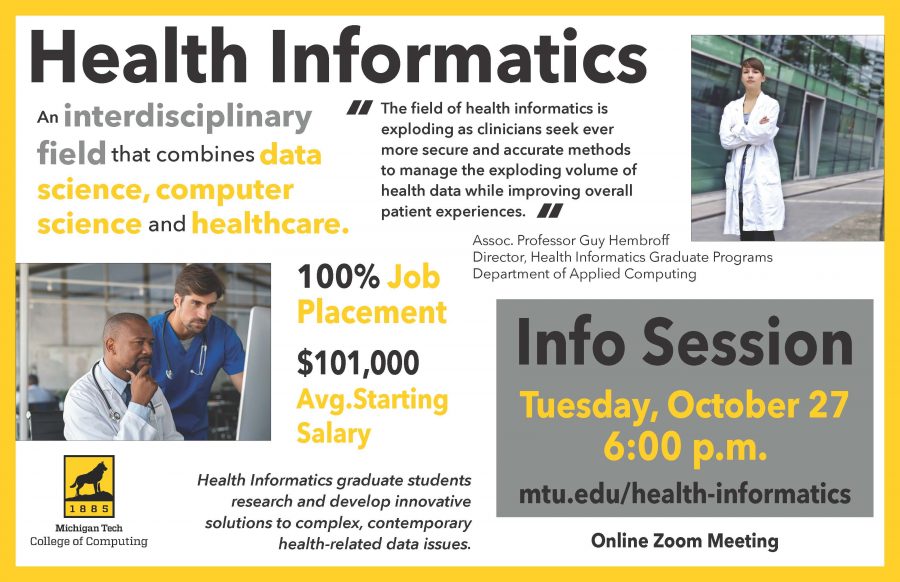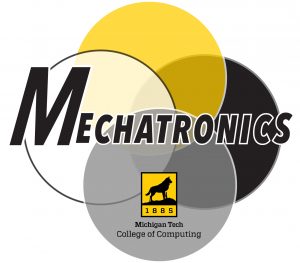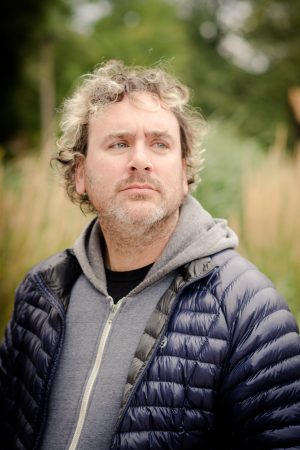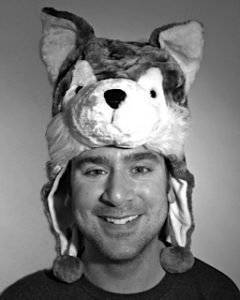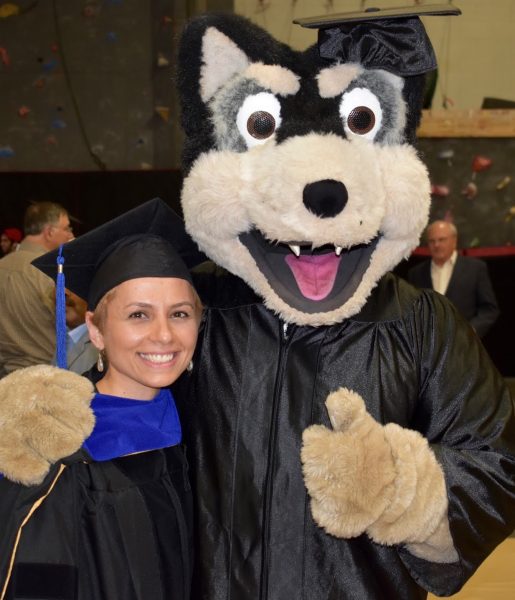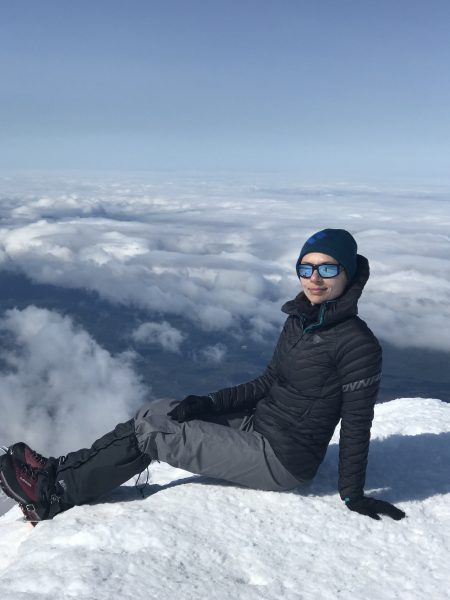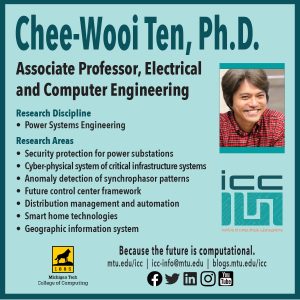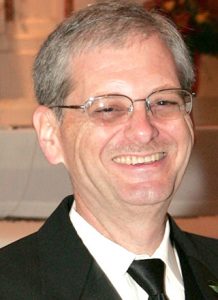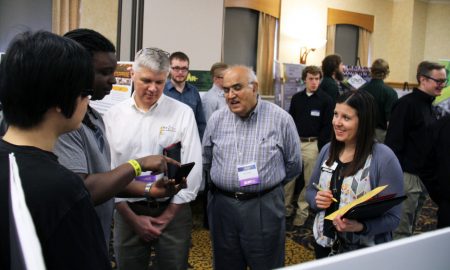Are you thinking about attending graduate school? Are you open to learning about emerging career areas in which you can leverage your undergraduate learning in healthcare or computer science?

On Tuesday, October 27, 2020, at 6:00 p.m., via online Zoom meeting, the Health Informatics Master of Science and Accelerated Master’s programs will present a virtual info session for current students.
Please pre-register for the free info session here.
From the general to the specific, the info session will cover what you need to know about applying for and completing a Health Informatics master’s degree at Michigan Tech.
Attendees will consider the benefits of an advanced degree, learn about the fast-track accelerated master’s program, review the the online application process, and more.
Associate Professor Guy Hembroff, Health Informatics graduate program director, and Jacque Smith, director of Enrollment Services for the Michigan Tech Graduate School, will host the info session.
A link to the virtual info session will be shared shortly.
